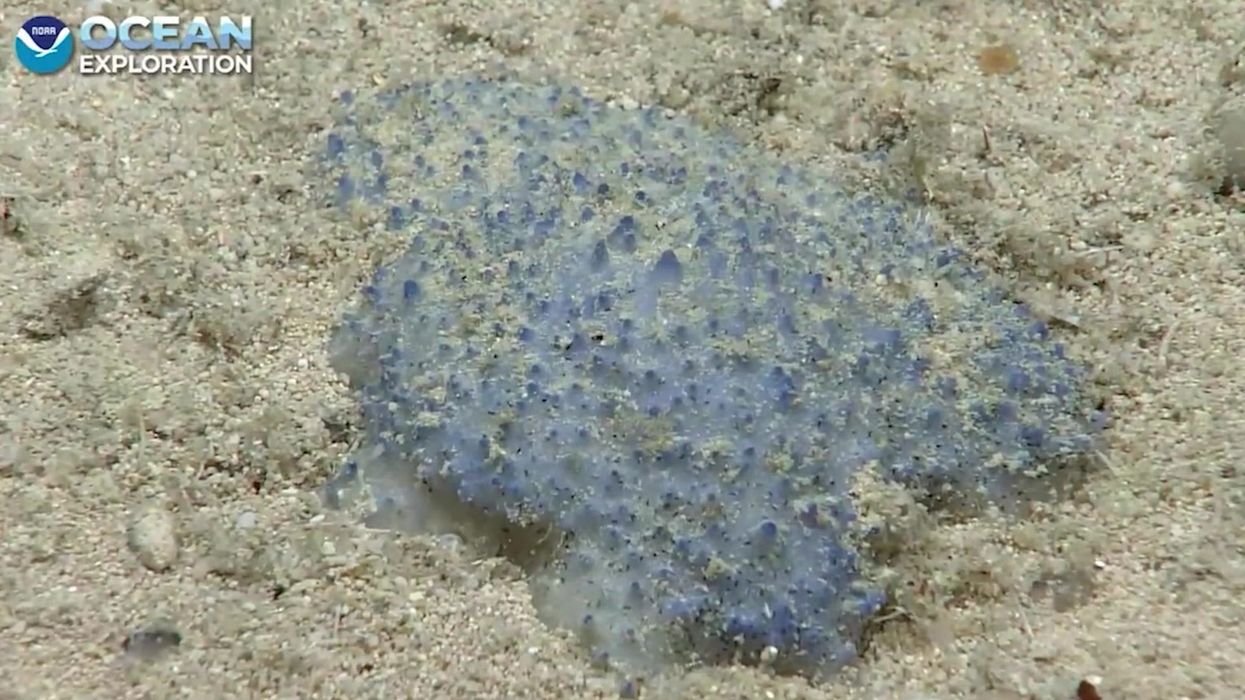Ellie Abraham
Feb 21, 2023
Scientists discover mysterious 'blue goo' organism on ocean floor in Caribbean
content.jwplatform.com
For the space novices among us, you may well have been under the impression that galaxies contain stars, but now scientists believe they have found what they believe to be a star-less dark galaxy.
A phonemoenon known as dark galaxies, they are almost completely comprised of dark matter. Dark matter is an unobservable but we know its there due to its gravitation forces.
Around 27 per cent of the universe is made up of it, but now scientist believe they have foud a whole dark dwarf galaxy that has almost no other stellar mass. While it is made up of a lot of gasses similar to other galaxies, the main key different is it contains no stars.
In contrast to what many people picture when they think of a galaxy far away in space, the dark starless galaxy was unexpexctedly found by scientists using the world’s largest telescope – the Five-hundred-meter Aperture Spherical radio Telescope (FAST) – and the Panoramic Survey Telescope and Rapid Response System (Pan-STAARS).
Sign up to our new free Indy100 weekly newsletter
Thanks to activity in the galaxy’s vicinity, the dark galaxy was located and given the name FAST J0139+4328. It is believed to be a disk galaxy location 1 - 1.25 million light-years away.
A research paper on the finding explained: “This is the first time that a gas-rich isolated dark galaxy has been detected in the nearby universe. In addition, a galaxy is assumed to form from gas, which cools and turns into stars at the center of a halo.
“FAST J0139+4328 has a rotating disk of gas and is dominated by dark matter, but is starless, implying that this dark galaxy may be in the earliest stage of the galaxy formation.”
Scientists have hypothesized that they may have found the galaxy before it developed the capability to form stars. The finding may provide some new and invaluable information about galaxy formation more broadly.
Have your say in our news democracy. Click the upvote icon at the top of the page to help raise this article through the indy100 rankings.
Top 100
The Conversation (0)
Sort by














